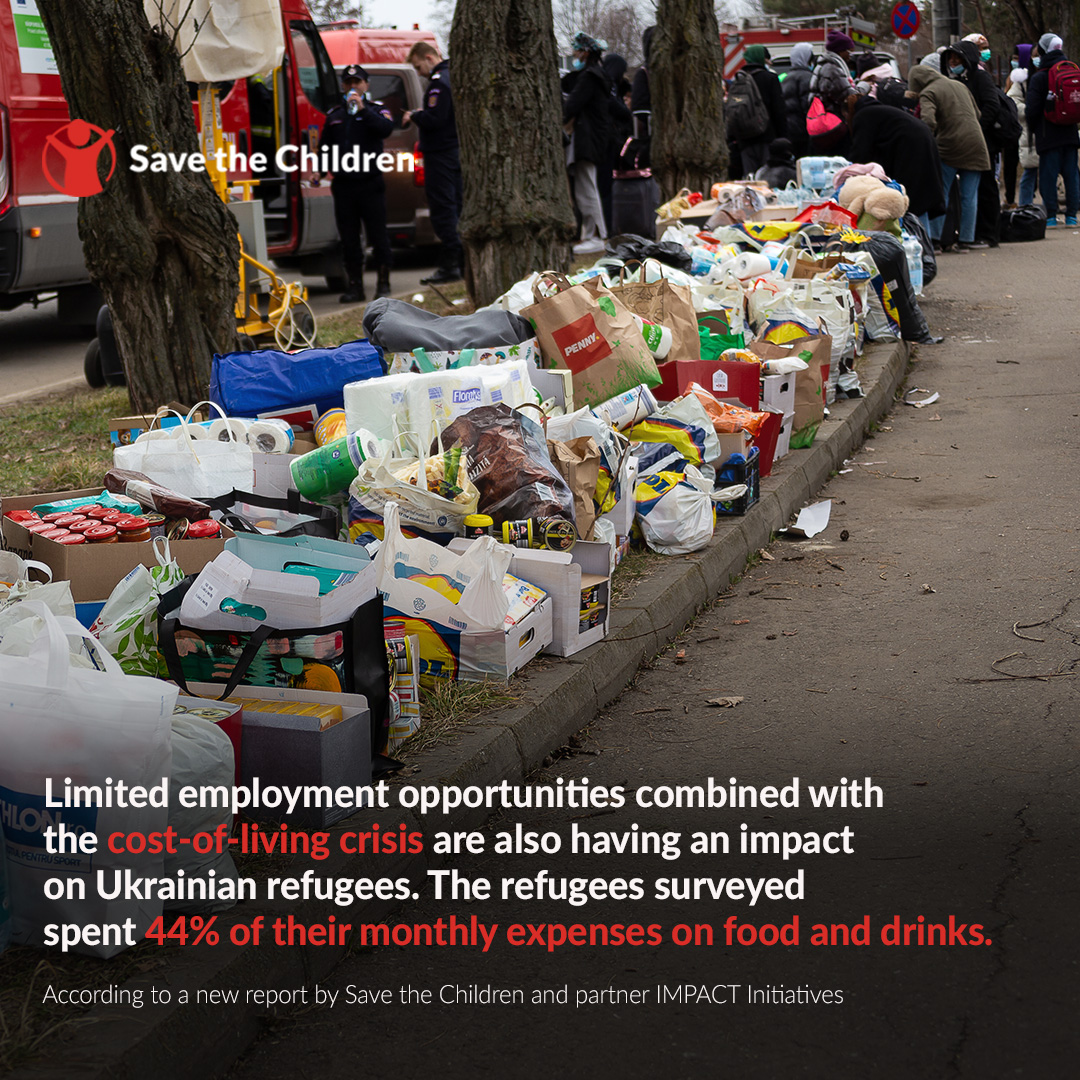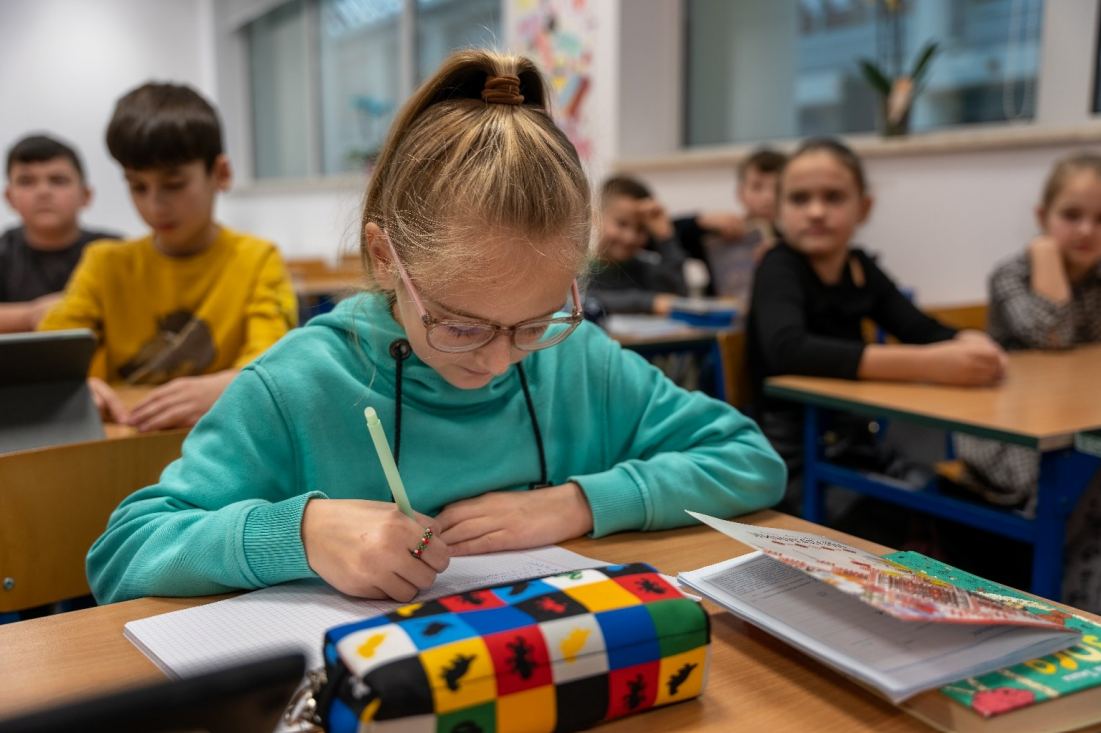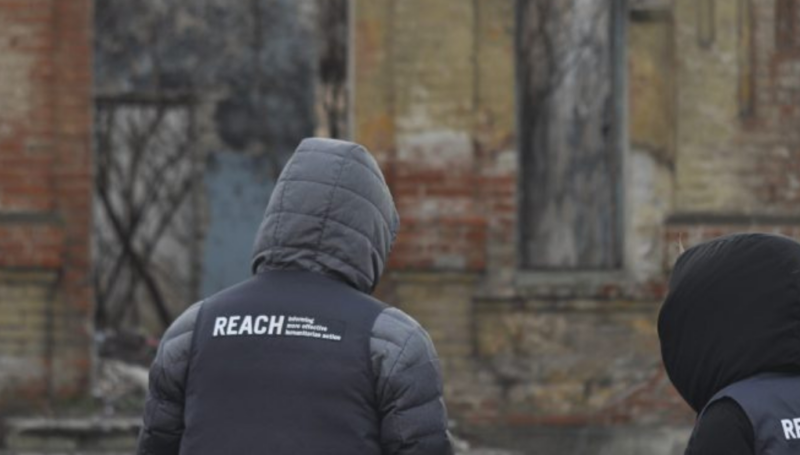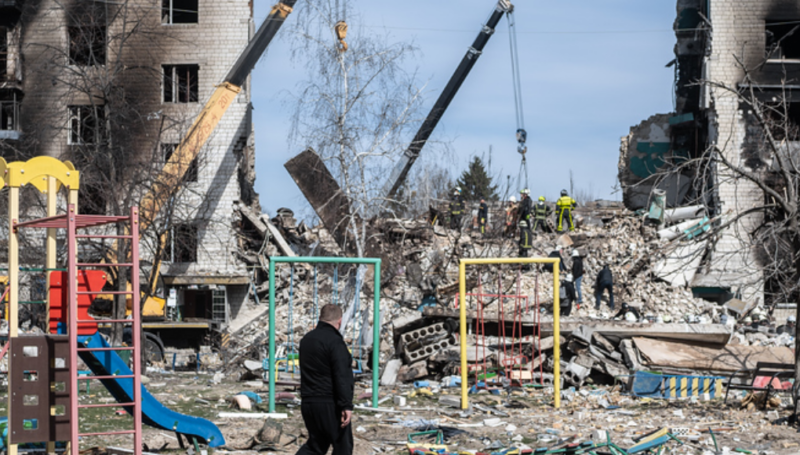About six million refugees from Ukraine were displaced across Europe as of mid-August 2023, 34% of whom are children. The objectives of this research were to analyse the vulnerabilities, risks and protective factors, as well as child protection needs of Ukrainian refugee children, adolescents and their caregivers – to improve evidence-based interventions related to child protection and monetary transfers.
To this end, IMPACT and Save the Children International (SCI) conducted a mixed-methods child protection (CP) and Cash assessment between November 2022 and April 2023. As part of its ongoing regional longitudinal phone survey, IMPACT conducted 15,229 interviews with Ukrainian refugees living in 24 European countries. Complementary to the survey, qualitative consultations were performed with 307 children ages 8–17 years old, focus group discussions (FGDs) with 115 child caregivers and 33 host community members, as well as 34 individual interviews with service providers in the CP, education and health sectors in Poland and Romania.
The assessment demonstrates that refugee children and caregivers from Ukraine feel generally safe in their host countries and enjoy, for the most part, access to a range of services. Yet many continue to face significant challenges as a result of their displacement. During the consultations in Poland and Romania, children said that they were most worried about missing their family, friends or pets left behind in Ukraine. “I am worried whether we will be able to return to Ukraine to my dad and my kitten.” – Girl, 8-11, Romania. They also expressed concerns about not knowing the local language of the host country and about experiencing xenophobic remarks and bullying in their host location. Similarly, caregivers across the 24 countries reported that children were most negatively affected by worries about the future (17%), not having enough friends around them (13%), not knowing the local language (13%), and missing friends and family in Ukraine (9%). In addition, children said what they needed the most was better access to extra-curricular activities, especially sport.

The majority of families – about 87% – intended to stay in their current location in the short-term, mainly due to security reasons and better access to education, but most families planned on returning to Ukraine once the security situation allowed. Limited employment opportunities combined with the cost-of-living crisis are also having an impact on Ukrainian refugees. “We really need jobs for half a day or part-time jobs because everyone has children, and usually everyone here is alone, with no one to help. For example, I am alone here with two children. I can’t leave them alone, and there are many people like me here.” – Female caregiver, Romania
Children in Poland and Romania highlighted family, in particular mothers, and friends as their most trusted actors for seeking support. Caregivers on the other hand, reported in the regional survey that they especially trusted host government institutions, such as police (32%) and state social services (25%), and volunteer/community organisations (24%). Refugees and host communities in both countries explained during the qualitative interviews that knowing the local language was both the most important facilitator of and barrier to integration. Enrolment in local schools and joint activities with local children were seen as other important facilitators. Host community members mentioned the unclear intentions of refugees to return or to stay in the mid- and long term as a barrier to integration.
All key findings are presented in the report, which for Magdalena Rossmann (Regional Deputy Programme Development & Quality Director – Ukraine Regional Refugee Response for Save the Children), “provides a unique insight into the experiences of refugee children from Ukraine. Children are telling us that they generally feel safe and welcomed in their host communities, but that they also face emotional and practical challenges. They need access to extra-curricular activities, such as sport and music, which they can take part in alongside local children. It’s essential that host governments provide specialised support for low-income refugee families, so that no child is left behind.”
Based on the findings of this assessment, different presentations have been conducted at country and regional-level protection, cash and information management working groups. Specific recommendations are also presented in the report, outlining steps that governments, the European Union (EU), civil society and humanitarian organisations can take to improve the lives of children from Ukraine and their families.
Specific child and adolescent-friendly briefs have also been published in Ukrainian, for the participants to understand the purpose and results of their consultations. Also, specific dashboards have been produced (English | Ukrainian), as well as Romania and Poland country briefs published in Ukrainian and English, and shared with humanitarian actors and the research participants. An article will also be published soon in the Forced Migration Review, reflecting the key findings of the report and the larger longitudinal study.
Read here the full report, and here the press release from SCI.










